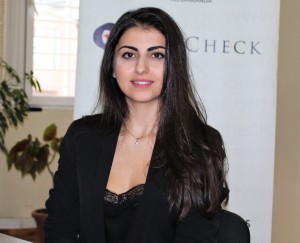space
შეფასებები აღმოსავლეთ პარტნიორობის 10 წლის იუბილესთან დაკავშირებით
Georgia: Insights on the EaP’s 10 years anniversary
space
Author: Mariam Tsitsikashvili (Tbilisi)
For author info see below
„აღმოსავლეთ პარტნიორობის“ დაწყებიდან 10 წლის შემდეგ, საქართველო ევროკავშირთან იმაზე მეტად ახლოსაა, ვიდრე ოდესმე. უფრო მეტიც, მის საკვანძო მოკავშირედ და სტრატეგიულ პარტნიორად ჩამოყალიბდა. გარკვეული დაბრკოლებების მიუხედავად, ქართული საზოგადოება და განსაკუთრებით ახალგაზრდა თაობა კვლავ მტკიცედ უჭერს მხარს ევროპული ინტეგრაციის პროცესს. საქართველოში ყველა დაინტერესებული მხარე თანხმდება, რომ აღმოსავლეთ პარტნიორობა ბოლო გაჩერება ვერ იქნება და ქვეყანამ ევროკავშირთან ინტეგრაციის პროცესი უნდა გააღრმაოს. მიუხედავად აღნიშნულ ენთუზიაზმთან დაკავშირებით აზრთა სხვადასხვაობისა ბრიუსელსა თუ ევროკავშირის სხვა დედალაქალებში, ნათელია, რომ საქართველოს ურყევი პრო-ევროპული საზოგადოებრივი განწყობა ქვეყნის რეფორმირების დაჩქარებისა და ევროკავშირთან დაახლოების მნიშვნელობანი ინსტრუმენტია.
ასოცირების შეთანხმება, ღრმა და ყოვლისმომცველი თავისუფალი სავაჭრო სივრცის ჩათვლით, და უვიზო მიმოსვლა ის მთავარი მიღწევებია, რომლებმაც ხელი შეუწყვეს ევროკავშირსა და საქართველოს შორის როგორც პოლიტიკური ასოცირების და ეკონომიკური ინტეგრაციის გაღრმავებას, ისე მათი პარტნიორობის განმტკიცებას. განსხვავებულ სოციალურ და ასაკობრივ ჯგუფში მყოფმა პირებმა, მათ შორის სტუდენტებმა, მეცნიერებმა, ფერმერებმა, მეწარმეებმა და სხვ. ხელშესახები სარგებელი ნახეს ევროკავშირის ისეთი პროექტებით, როგორებიცაა EU4business, ENPARD, Erasmus+, Horizon 2020 და ა.შ. აღნიშნულზე მკაფიოდ მეტყველებს შემდეგი რიცხვებიც: 2009 წლიდან, ENPARD პროგრამის ფარგლებში, ევროკავშირმა 1,600 კოოპერატივს აღმოუჩინა ფინანსური და ტექნიკური მხარდაჭერა, წვლილი შეიტანა 59 საინფორმაციო და საკონსულტაციო ცენტრის დაფუძნებაში; 40 ათასმა მცირე და საშუალო საწარმომ, მიკროსაწარმომ და ფერმერმა მიიღო კრედიტი; HORIZON 2020-ის ფარგლებში ასევე გათვალისწინებულია 130 მლნ. ევროს მოცულობის კრედიტი ინოვაციური მცირე და საშუალო საწარმოებისა, და საშუალო კაპიტალიზაციის მქონე მცირე კომპანიებისთვის. აღმოსავლეთ პარტნიორობა ცხოვრების შემცვლელი გამოცდილების მომტანი გამოდგა განსაკუთრებით ახალგაზრდობისთვის – Erasmus+-ის ფარგლებში, საქართველოსა და ევროკავშირს შორის 5,500-ზე მეტმა სტუდენტმა და აკადემიურმა პერსონალმა მიიღო გაცვლით პროგრამებში მონაწილეობა, ხოლო 9,300-ზე მეტი ქართველი ახალგაზრდა იყო ჩართული ერთობლივ ტრენინგებში, გაცვლით და მოხალისეობრივ პროექტებში. აღნიშნული სარგებლიდან გამომდინარე, ზოგიერთი ზემოხსენებული პროგრამა, საზოგადოებრივი ცნობადობის თვალსაზრისით აღმოსავლეთ პარტნიორობასაც აღემატება.
გასული 10 წლის განმავლობაში, საქართველოს მოქალაქეებმა კიდევ უფრო მკაფიოდ გააცნობიერეს, რომ ევროპული ინტეგრაციის პროცესი გრძელვადიანი პროექტია, რომელიც ეტაპობრივად უზრუნველყოფს გაზრდილ მობილობას, ვაჭრობას და ცხოვრების დონის ამაღლებას. მიუხედავად იმისა, რომ საზოგადოებას უფრო მეტად დაჩქარებული რეფორმებისა და ცვლილებების იმედი ჰქონდა, ქართული საზოგადოება კვლავაც ურყევ მხარდაჭერას უცხადებს ქვეყნის ევროპულ მიზანს და მოსახლეობის 82% ევროკავშირში გაწევრიანების მხარდამჭერია. ამ მხრივ, განსაკუთრებით გამოირჩევიან ახალგაზრდები, რომლებიც ევროპული ინტეგრაციის პროცესს ქვეყნის დემოკრატიული განვითარებისა და ეკონომიკური კეთილდღეობის უზრუნველყოფის ყველაზე ძლიერ მექანიზმად მიიჩნევენ.
აღმოსავლეთ პარტნიორობა კვლავაც რელევანტური საგარეო პოლიტიკური პროექტია, თუმცა საქართველოსთვის ფინიშის ხაზს არ წარმოადგენს. როგორც ქვეყნის საგარეო საქმეთა მინისტრი დავით ზალკალიანი აღნიშნავს „იმისთვის, რომ აღმოსავლეთ პარტნიორობა დარჩეს ეფექტური და წარმატებული მომდევნო 10 წლის მანძილზე, საჭიროა იყოს მოქნილი, დინამიკური და წინმხედველი“. ანალოგიურად, უკრაინა და მოლდოვა, რომლებმაც შესაბამისი ძალისხმევა გასწიეს რეფორმების გატარების თვალსაზრისით და ევროკავშირთან ასოცირების შეთანხმებასაც მოაწერეს ხელი, სულ უფრო ენერგიულად ითხოვენ დიფერენცირებულ მიდგომას. ამგვარი მიდგომა უზრუნველყოფდა ასოცირებულ პარტნიორ ქვეყნებს ეკონომიკური და პოლიტიკური თანამშრომლობის გაღრმავების ინსტრუმენტებით და საბოლოო ჯამში ხელს შეუწყობდა ევროკავშირის სრული წევრობის მიღწევას. თუმცა, ევროკავშირის ზოგიერთმა სკეპტიკურად განწყობილმა სახელმწიფომ სწრაფად გამორიცხა აღმოსავლეთ პარტნიორობიდან „ევროკავშირთან ინტეგრაციის ან წევრობის ყველა პერსპექტივა ან ყველა მექანიზმი“. აღნიშნული წინააღმდეგობაში მოდის 2017 წლის აღმოსავლეთ პარტნიორობის სამიტის დეკლარაციასთან, რომელშიც ევროკავშირის საბჭომ აღიარა აღმოსავლეთ ევროპული პოლიტიკის ფარგლებში დიფერენცირების პრინციპის საჭიროება.
ახლა, როდესაც აღმოსავლეთ პარტნიორობამ 10 წლიან ნიშნულს მიაღწია, ევროკავშირს და პარტნიორ სახელმწიფოებს სჭირდებათ წინმხედველი და ამბიციური დღის წესრიგის შემუშავება, რომელიც პარტნიორებს საშუალებას მისცემს მათი შესაძლებლობისა და ინტერესების შესაბამისად მოახდინონ ევროკავშირთან ჩართულობა. აღმოსავლეთ პარტნიორობის ასოცირებულმა ქვეყნებმა უკვე განაცხადეს საკუთარი ამბიციები „ევროკავშირის ერთიან ბაზართან სრული წვდომის უზრუნველსაყოფად მიმართული ეტაპობრივი ინტეგრაციის“, ისევე როგორც „ოთხი თავისუფლების დანერგვის პროცესში ახალი ჰორიზონტების გახსნის“ თვალსაზრისით. საჭიროა ევროკავშირმა აღიაროს, რომ პარტნორობა საქართველოსთან და სხვა ასოცირებულ ქვეყნებთან, მხოლოდ იმ შემთხვევაში გაგრძელდება და განვითარდება, თუ იარსებებს საერთო სამომავლო ხედვა – „აღმოსავლეთ პარტნიორობა“ როგორც პარტნიორი ქვეყნების ევროკავშირში ინტეგრაციისა და სრულ წევრობასთან მიახლოების ხელშწეყობის მყარი ინსტრუმენტი. შესაბამისად, ნაცვლად ზედმეტი აქცენტირებისა რომ „აღმოსავლეთ პარტნიორობა“ საბოლოო ჯამში გამორიცხავს წევრობის პერსპექტივას, ევროკავშირმა ეფექტურად უნდა გამოიყენოს საკუთარი ბერკეტები და ასოცირების შეთანხმების ხელმომწერ ქვეყნებს რეფორმების დაჩქარებისკენ უბიძგოს. ამ უკანასკნელის გარეშე, შესაძლოა ევროკავშირმა საფრთხე შეუქმნას რეგიონში საკუთარ პოლიტიკურ ამოცანებს.
2019 წლის დეკემბერში, ევრონესტის საპარლამენტო ასაბლეაზე წარმოდგენილი იქნა ახალი საფლაგმანო ინიციატივა „ტრიო პლუს სტრატეგია“. აღნიშნული ინიციატივა გზას უხსნის „ევროპული ტრიოს პროცესს“, რომელიც ევროკავშირისა და პარტნიორი სახელმწიფოებისთვის უფრო ღრმა ინტეგრაციის ინსტრუმენტებს ითვალისწინებს. აღნიშნული ინიციატივა „ბერლინის პროცესის“ მსგავსია, რომელიც 2014 წელს დასავლეთ ბალკანური სახელმწიფოების ევროკავშირთან დაახლოვების მიზნით ამოქმედდა. ევროკავშირის მხრიდან დამტკიცების შემთხვევაში, ზემოხსენებული ინიციატივა ასევე გაზრდის პარტნიორი ქვეყნების მოტივაციას საერთო დემოკრატიული, კეთილდღეობის, სტაბილურობისა და მზარდი თანამშრომლობის სივრცის ჩამოყალიბებისთვის საჭირო რეფორმების გატარების მიზნით.
„აღმოსავლეთ პარტნიორობის“ პოზიტიური გავლენა საქართველოზე უდავოა. თუმცა, იმისთვის რომ პოლიტიკამ ტრანსფორმაციული ხასიათი შეინარჩუნოს, ევროკავშირს და პარტნიორ ქვეყნებს საჭიროა ჰქონდეთ მყარი და მომავალზე ორიენტირებული ხედვა „აღმოსავლეთ პარტნიორობის“ მომდევნო ათწლეულთან დაკავშირებით. აღნიშნული მიზნის მისაღწევად, „ტრიუს პლუს სტრატეგია“ წარმოადგენს „აღმოსავლეთ პარტნიორობის“ ახალ საწყის წერტილს, რომელმაც უდაოდ უნდა უზრუნველყოს ევროკავშირსა და პარტნიორებს შორის თანამშრომლობის კიდევ უფრო გაღრმავება.
Ten years since the launch of the Eastern Partnership, Georgia has come closer to the EU than ever before, becoming a key ally and strategic partner. Despite some bumps on the road, Georgian public and particularly its youth continues to be an ardent supporter of the European integration process. All key stakeholders in Georgia agree that the EaP cannot be the final stop and that the country should seek deeper integration with the EU. While opinions in Brussels and indeed the member states’ capitals vary on whether this enthusiasm ought to be embraced, the overwhelming pro-European public opinion presents considerable leverage to advance the reform process and bring Georgia closer to the EU.
The Association agreement (AA), including the Deep and Comprehensive Free Trade Area (DCFTA) and visa-free travel, are clearly prime achievements, having accelerated political association, economic integration and enhanced partnership between the EU and Georgia. New opportunities through projects such as EU4business, ENPARD (European Neighbourhood Programme for Agriculture and Rural Development), Erasmus+, Horizon 2020, etc have also delivered tangible benefits to different social and age groups, including students, academicians, farmers, entrepreneurs, etc. The numbers give a clear testimony: Since 2009, the EU has provided financial and technical support to 1,600 cooperatives and has helped to establish 59 information and consultation centres through the ENPARD programme; 40,000 small and medium enterprises (SMEs), microenterprises and farmers have received loans; and a total of €130 million in loans are available for innovative SMEs and small midcap companies under Horizon 2020; EaP has provided some life changing experience particularly for the youth – under Erasmus+, over 5,500 students and academic staff exchanges have taken place between Georgia and the EU; over 9,300 young people and youth workers from Georgia have been involved in joint exchanges, training and volunteering projects. These benefits have helped some of those programmes’ visibility to surpass that of EaP itself.
In those ten years, Georgians have increasingly become aware that the European integration process constitutes a long-term project which brings increased mobility, trade, and better quality of life gradually. Though many have hoped for swifter reforms and changes, Georgians continue to demonstrate resilient support for the country’s European goal, with 82 percent approving EU membership. Particularly the youth sees the European integration process as the strongest mechanism for the country’s democratic development and economic prosperity.
While the EaP continues to be a relevant foreign policy project, it does not represent a finish line for Georgia. As stressed by Georgia’s foreign minister, David Zalkaliani “for the EaP to remain effective and successful in the next ten years, it needs to stay flexible, dynamic and forward-looking.” Likewise, Ukraine and Moldova, which have exerted comparable reform efforts and signed Association Agreements with the EU, have been increasingly pushing for more differentiation that would provide more instruments for the associated partners to deepen economic and political cooperation, eventually facilitating their full EU membership. Some sceptic EU capitals have been fast to exclude “all prospects or all mechanisms of EU integration or membership” from the EaP. This happens in contrast to the 2017 EaP Summit declaration in which the EU Council itself recognized the need for the differentiation principle within the policy.
Now that the EaP recently reached its 10-year milestone, the EU and its partners need to refine a forward-looking and ambitious agenda that will enable partners to engage with the EU in accordance with their own capabilities and interests. EaP’s associated countries have already declared their ambitions of “gradual integration aimed at achieving full access to the EU single market” as well as “opening new horizons in implementing four freedoms.” Now the EU needs to acknowledge that the partnership between Georgia, as well as other associated countries, and the EU can only last and endure if there is a shared future wherein the EaP represents a facilitating instrument for partners to deepen their integration with the EU and to come closer to the full membership. Therefore, the EU must embrace its leverage to push reforms and get the AA countries to deliver on these in their complex region rather than overemphasising that the EaP ultimately excludes a membership perspective. Without the latter, the EU may endanger its own policy goals in the region.
In December 2019, the Euronest Parliamentary Assembly has presented a new flagship initiative – the Trio Plus Strategy – that paves the way to establishing the European Trio Process with deeper integration instruments for the EU and its associated countries. The initiative is comparable to the Berlin Process that was launched in 2014 and aimed at bringing the Western Balkan countries closer to the EU. The initiative, if taken up by the EU, would also increase appetite of the partner countries to undertake necessary reforms aimed at building a common area of shared democracy, prosperity, stability and increased cooperation.
The positive impact of the EaP is undeniable in Georgia. However, in order for the policy to maintain its transformational impact, the EU and its partners need to embrace an enhanced and future-oriented vision for the next decade of the EaP. To this end, the Trio Plus Strategy represents a new starting point for the EaP to ensure lasting and irreversible achievements and deepening cooperation between the EU and its partners.

Mariam Tsitsikashvili
Mariam Tsitsikashvili holds the position of project manager and research fellow at Georgia’s Reforms Associates (GRASS), a multi-profile Think Tank established in Georgia. She supervises projects related to European integration, foreign state-sponsored disinformation and malign influence. Her research interest thus includes: foreign and security policy. Before taking the position of project manager, she worked as a political analyst at FactCheck Georgia. Currently, she is also a non-resident fellow at Prague based European Values Center for Security Policy. She holds a degree of Master of Social Sciences, with the major in Eurasian and Caucasus Studies and a bachelor’s degree in International Relations from Tbilisi State University. She also studied International Relations at Adam Mickiewicz University in Poznan, Poland.
Credits: Photo of Tbilisi by Denis Arslanbekov
